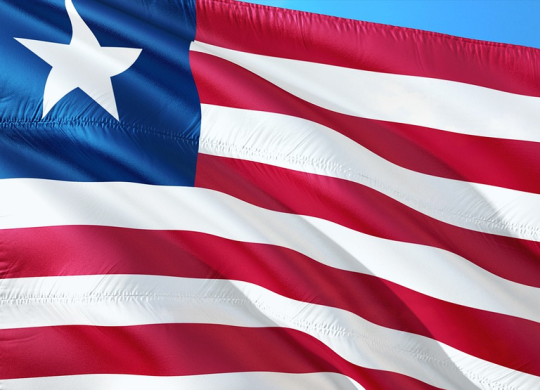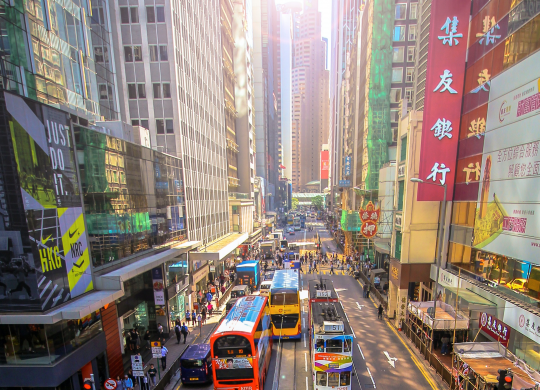Work and Employment in Liberia: Work Permits in Liberia
Table of contents

Liberia is a country located in West Africa. The capital of the state is the city of Monrovia, and the official currency is the Liberian dollar. Liberia is included in the list of the poorest countries in the world because only 15% of the working population works here. The country was almost always dependent on foreign aid, exports, and international investments. The war a few decades ago also worsened the economic situation. Diamond deposits helped the country survive.
Today, the country's infrastructure and agricultural sector are poorly developed, trade and political relations with neighbouring countries are not established, and there is a dependence on foreign currency, which has caused a situation in which the economy of Liberia cannot develop normally. What saves the country is that the government supported the development and extraction of minerals. However, the majority of the population of this country lives below the poverty line, and the unemployment rate is skyrocketing. Although Liberia is rich in mineral and natural resources and the economy has considerable potential. The economy is mainly fed by agriculture. The country exports diamonds, iron ore, timber, coffee, etc., and imports fuel, chemicals, machinery, and transport equipment, industrial and food products.
Employment in Liberia
Employment opportunities in the country are limited. Health and education systems are generally underdeveloped, so the private provision of services is important. Safety can be problematic, so following your employer's instructions is important. You should not go outside the capital and always be aware of your surroundings.
The majority of Liberia's population engages in subsistence agriculture, bartering, illegal mining, and other informal economic activities.
The main challenges are the lack of infrastructure and trained personnel, as well as the effects of civil war and Ebola. Any domestic production that exists is mostly owned by foreigners. There is no minimum wage in Liberia, nor is there a mandatory minimum wage rate for workers. A person working in Liberia usually earns about 71,800 LRD per month. Salaries range from LRD 18,200 (lowest average) to LRD 320,000 (highest average, the actual maximum salary is higher).
Work permits in Liberia
Foreigners wishing to work in Liberia need a work permit. The process is easier for permanent workers than for contract workers, as the work permit is tied to the employer. A work permit is issued by your employer and can be applied for and obtained from the Ministry of Labor in Liberia. A completed work permit application form and all supporting documents will need to be submitted to the Ministry of Labor of Liberia. When the ministry approves the application, the foreigner can start working in Liberia.
Visa to Liberia
You will need a visa to work in Liberia. It can be obtained from Liberian embassies and consulates. There are two types of visas:
• one-time: up to 3 months;
• multiple entries: valid for one or two years, although US citizens can also obtain a three-year visa.
Taxation in Liberia
Liberia's main domestic taxes include corporate income tax, personal income tax, goods, and services tax, and excise tax.
Individual tax rates for individuals resident in Liberia are determined according to the following progressive system:
Up to 70,000 LRD — 0%
70,001-200,000 LRD — 5%
200,001-800,000 LRD — 15%
Over 800,001 LRD — 25%.
Non-residents pay tax on income sourced in Liberia. The corporation tax rate is 25% and 30% for general companies and mining/oil companies respectively. Some mining/oil companies have preferential government tax rates.
Security
The security situation in the country is not too optimistic. Foreigners are occasionally the victims of attacks, although the main victims of crime are Liberians. The Liberian National Police has very limited capacity to prevent or detect crime or respond to emergencies in any part of the country. After dark, the crime rate is much higher. By the way, you can take out insurance on our website.
Recommended articles
3 min
Work
Work in Hong Kong in 2024: employment features, advantages, disadvantages and types of work visas
Hong Kong is one of the most attractive places to move abroad, at least for employment. However, expats here will have to face tough competition. Find out about the advantages, disadvantages and peculiarities of working in Hong Kong, as well as the available types of work visas in 2024
19 Jul. 2024
More details3 min
Work
Jobs for foreigners in Belgium in 2024: the labor market, where to look for a job and a visa
Belgium is one of the richest countries in Europe, and its capital, Brussels, is the city where the European Commission, the Council of the European Union are located, and one of the three cities where the European Parliament is located. All these factors contribute to the employment of foreigners here. Find out what it takes to find a job in Belgium in 2024
06 Sep. 2024
More details5 min
Travels
All materials and articles are owned by VisitWorld.Today and are protected by international intellectual property regulations. When using materials, approval from VisitWorld.Today is required.
